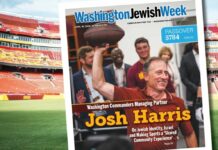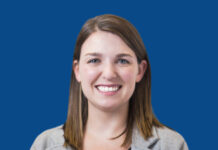
Jan Lee | Special to WJW
Jackie Hajdenberg | JTA
So many campers were sick with COVID-19 earlier this summer at Ramah New England that its director, Rabbi Ed Gelb, put out a call to families: Would any nurses be willing to come to camp for a few days to help?
“We have a large and capable nursing staff, but more help would be great,” he wrote.
Gelb’s request came in an extended email about the state of the pandemic at the Palmer, Mass., Jewish camp, in which he said some buildings had been transformed temporarily into infirmaries. But unlike some other camps, he said, Ramah New England would not be introducing universal masking or surveillance testing.
“COVID is in camp and I don’t think we are going to eradicate it during this session,” Gelb wrote.
When the 2022 summer camp season finally kicked into gear, many young campers were ready to go. The past two summers of COVID-19 restrictions, cautious quarantines and vaccinations has been a dismal experience for many kids across the country.
Many had hope that COVID, with all of its tedious restrictions, was becoming a thing of the past.
Except it’s not. The new omicron variant, often referred to as BA.5, is the latest version of COVID to turn up at summer camps, often sending scores of campers to infirmaries and forcing administrators to send kids home for quarantine.
A sports camp in California abruptly ended its first session two days early to stop the spread of COVID. The camp even had its weekly Shabbat celebration on a Wednesday, to give the campers the richest experience possible before they went home, reported J, The Jewish News of Northern California.
Still, not all camps have reported a rapid increase in infections. Some of the camps that cater to Baltimore and Washington, D.C., Jewish communities have found that applying the personalized lessons from last year’s COVID wave led to fewer infections. Well-publicized COVID protocols, practical strategies that parents participated in and a flexible approach made all the difference, said camp administrators.

Preparing for a second COVID season
Capital Camps reopened its summer camp at its Waynesboro, Pa., location cautiously last year, after suspending programs in 2020. According to CEO Havi Goldscher, drawing on the lessons of last year helped staff prepare for a second COVID season at camp.
“We all knew that COVID was going to come to camp this summer,” Goldscher said, adding that Capital Camps and other camps routinely share best practices before summer reopenings. “We knew that we were in a different chapter of the virus than we had been in previous years, and that we needed to be prepared.”
Goldscher said she and her staff developed vaccination, testing and quarantine protocols ahead of the first session and then published them on the website before enrollment. They also enlisted parents in the process. If campers or staff came down with COVID, they were sent home for the first 5 of a 10-day quarantine. On the sixth day, they were able to return and finish their quarantine in special quarters set aside for that purpose. Goldscher said having a solid COVID mitigation plan that enlisted parents as partners in the process helped keep numbers low at camp. “Most of our cabins have not had COVID,” Goldscher said.
“[Our] biggest takeaway is that we have to be flexible,” she said. “And we have to be willing to evolve as the situation changes.”
Capital Camps isn’t the only camp that has been able to institute a fluid but workable plan that keeps kids at camp. Habonim Dror Camp Moshava, located in northern Maryland, found that being proactive was key to keeping kids where they wanted to be: at play. Like Capital Camps, Camp Moshava required campers to be fully vaccinated. But they opted to keep kids on site if they got sick. The camp made prevention measures a routine part of camp life, so kids could feel relaxed and not stigmatized for wearing a mask.
Camp Moshava Executive Director Kevin Bernstein said kids understand wearing masks are necessary for safety at times.
“There is no questioning of each other if someone chooses to wear a mask,” Bernstein said, adding that school life had already introduced them to the reality that masks play an important role in keeping kids safe.
Of the 100 kids that attended the first session, Bernstein estimated that there has been about seven infections over the 19-day session.
“I think what we’re learning is that we don’t really know if we’re keeping COVID less or more. We do the best we can,” Bernstein said. “But we try not to get caught up with blaming ourselves, [with] self-pride or with condemning others.”

Perlman Camp, a B’nai B’rith camp in northern Pennsylvania, also adopted specific COVID protocols. Like Capital Camps and Camp Moshava, Perlman enlisted parents’ involvement by reducing social activities outside of the house the week before departure. It also included a link to its COVID protocols on the front page of its website.
CEO Harrell Wittenstein said the “handful of cases” the camp experienced during the first 26-day session was evidence that vaccinations, testing and quarantine measures work.
“I think we’ve been on the lucky side,” Wittenstein said. “Good planning and a little bit of luck goes a long way.”
But he said the real evidence that COVID protocols work is the kids.
“Kids are having a great summer,” he said. “There’s lots of laughing and singing. When you see the kids in action, it’s like before [COVID] started. They’re having a great time [and] learning all those things they are supposed to learn in summer camp.”
Not quite back to normal
Last year, Jewish camps tended to create a “bubble” — once children and counselors entered camp and underwent a strict quarantine, they would be able to have a regular summer, but no one could leave or enter their camps. This year, camps still required testing before arrival, but overall, many were not as strict as they were last summer. Many have allowed counselors to leave on their days off and allowed people offering programming to enter, while the declining effectiveness of testing meant some infections entered with campers and spread, undetected.
Now, some camps have rejiggered their plans to create more space for quarantining, limit activities and, in many cases, do away with visiting days that would have marked a return-to-normalcy milestone.
A slew of camps, including several operated by the National Ramah Commission, abruptly announced that, contrary to the plans in place at the start of the summer, parents and siblings won’t be able to visit this summer. Instead, some will be breaking from a cardinal rule of overnight camp and allowing campers video calls with their families.
Some camps did away with visiting day before the summer, capitalizing on the trial run of the 2021 bubble to make a more permanent decision about a complex feat of logistics that sometimes left campers feeling unsettled. Camp Morasha, which serves Modern Orthodox families in Lakewood, Pa., polled parents in February asking whether it should offer a visiting day, which it said many campers had experienced as disruptive. Ultimately, the summer was scheduled without a visiting day.
Camp Towanda in nearby Honesdale, Pa., took visiting day off the summer schedule a few days into camp. Camp Director Mitch Reiter said the decision to cancel was difficult but “almost a no-brainer,” given the fact that many of the potential visitors spend the summer traveling across the country or around the world. He said the camp had not set policy for the future.
“We’re only thinking about this summer right now,” Reiter said.
Jan Lee is an independent journalist who writes on Jewish culture, history, business and the environment.






